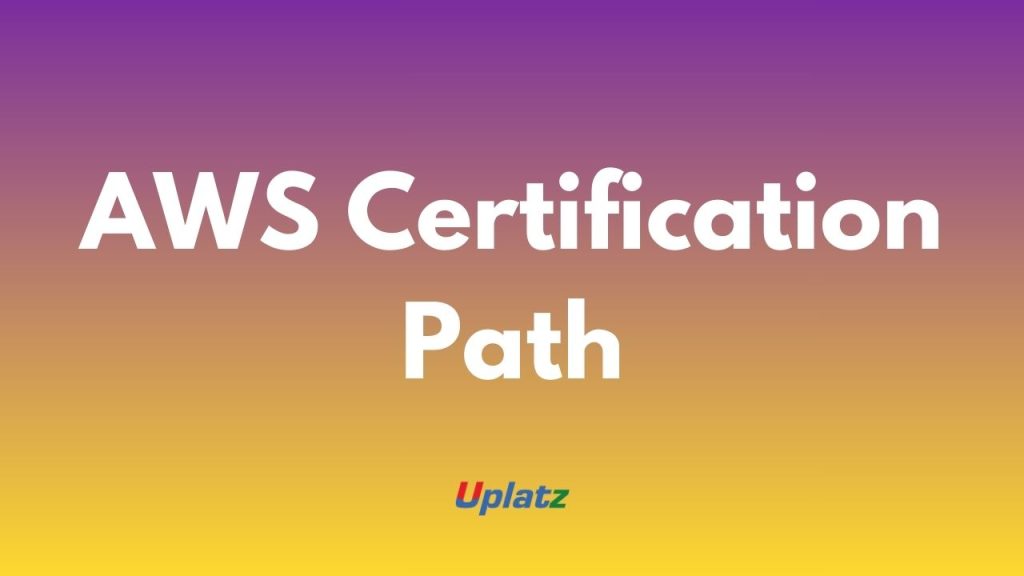AWS Certification Path: Levels and Specializations

🔗 Learn Amazon Web Services with Uplatz – Enroll in the full AWS course here
Introduction
The AWS (Amazon Web Services) certification path is designed to validate your knowledge and expertise across a wide range of cloud services. These certifications cover different levels and specializations, helping IT professionals prove their ability to design, deploy, and manage applications on the cloud.
Whether you are new to cloud computing or aiming for advanced expertise, AWS offers certifications that align with career goals in architecture, development, operations, data, AI, and security.
Foundational Level
-
AWS Certified Cloud Practitioner
This entry-level certification validates your understanding of basic cloud concepts, AWS services, and security fundamentals. It is a great starting point for professionals new to cloud technologies.
Associate Level
-
Solutions Architect – Associate
Focuses on designing and deploying scalable, fault-tolerant systems on the AWS cloud. Covers best practices in architecture and service integration. -
Developer – Associate
Validates your skills in building and maintaining AWS-based applications. Involves working with SDKs, the AWS CLI, and basic application security. -
SysOps Administrator – Associate
Concentrates on operational aspects, such as deployment, monitoring, and troubleshooting applications in the AWS environment.
Professional Level
-
Solutions Architect – Professional
Intended for experienced architects, this certification demonstrates advanced design skills for complex enterprise applications. -
DevOps Engineer – Professional
Combines development and operations expertise. It validates your ability to manage applications using DevOps practices, including CI/CD pipelines and automation.
Specialty Certifications
AWS offers specialty certifications for advanced skills in specific domains:
-
Advanced Networking – Specialty: Expertise in building and managing complex AWS and hybrid networking systems.
-
Security – Specialty: Skills in securing workloads and architectures on AWS.
-
Machine Learning – Specialty: Ability to design, train, and deploy ML models on AWS services.
-
Database – Specialty: Focuses on managing and optimizing AWS database solutions.
-
Data Analytics – Specialty: Validates expertise in building scalable, cost-effective data analytics solutions.
-
Alexa Skill Builder – Specialty: Demonstrates the ability to design, test, and publish Alexa skills.
-
Cloud Practitioner for Machine Learning: Validates an understanding of ML concepts and their application within AWS.
Staying Current
AWS regularly updates its certification offerings. To stay informed, check the official 🔗 AWS Certification Website for the latest requirements and available exams.
Internal link suggestion: Compare AWS with Microsoft’s track in our Azure Certification Path guide.
Conclusion
The AWS certification path offers a structured way for professionals to advance their careers in cloud computing. From foundational knowledge to specialized expertise, these certifications validate your skills and open new opportunities across industries. Whether your focus is architecture, security, data, or AI, AWS certifications remain one of the most valuable credentials in today’s IT job market.
